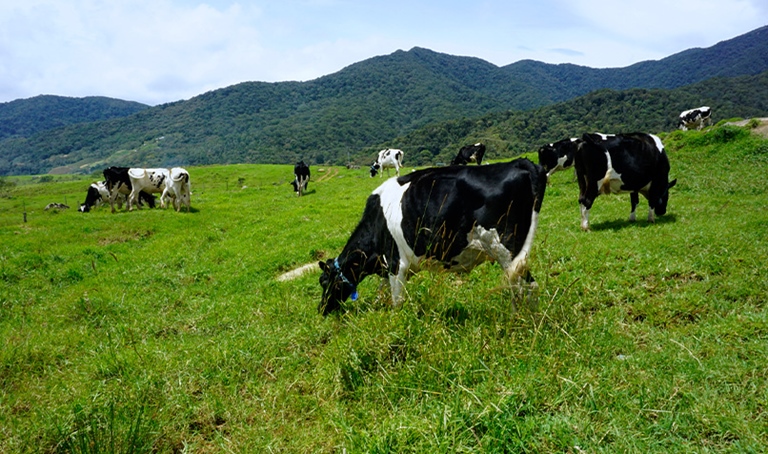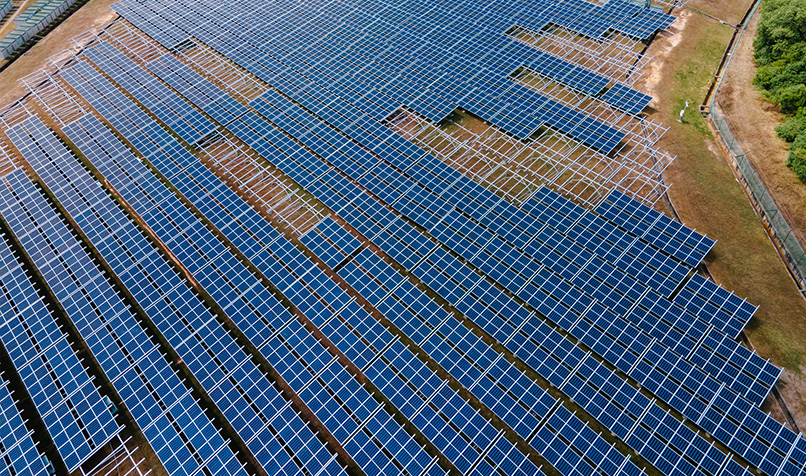Loading component...
At a glance
Anwar Ibrahim, Malaysia's Prime Minister and Finance Minister, has delivered a record 470-billion-ringgit Budget as the country aims to rebuild fiscal buffers, modernise the economy and strengthen competitiveness.
The key numbers from Malaysia’s 2026 Budget are:
- total expenditure: 470 billion ringgit (up from 421 billion ringgit in Malaysia’s previous budget)
- fiscal deficit: Targeted to narrow to 3.5 per cent of GDP
- revenue: 343.1 billion ringgit
- GDP growth forecast: 4.0–4.5 per cent.
The focus areas of the budget are:
- empowerment of small-to-medium enterprises (SMEs)
- digitalisation
- green transition
- inclusive prosperity
- fiscal discipline.
Malaysia’s Budget 2026 aims to:
- rebuild fiscal buffers
- modernise the economy
- strengthen competitiveness through digitalisation and sustainability.
CPA Australia’s analysis of Malaysia Budget 2026
This budget is notable for the breadth of its initiatives, some of which align with suggestions made by CPA Australia. Our pre-budget submission called for sustainable tax-base expansion, improving SME access to finance, ESG-aligned incentives and boosting productivity through digital transformation. Many of these now feature prominently in this Budget.
The challenge ahead lies in delivery and sequencing — ensuring financing reaches viable SMEs, carbon-pricing mechanisms are phased in smoothly, and digital investments yield measurable productivity returns.
Expenditure
With revenue expected to reach 343.1 billion ringgit, growth between 4.0 and 4.5 per cent, and continued momentum in technology and energy sectors, Malaysia is attempting to balance reform with responsibility — not through higher taxation, but through better governance, targeted incentives and productivity-driven growth.
At 470 billion ringgit, total expenditure rises modestly while the deficit is projected to narrow to 3.5 per cent of GDP.
Public spending comprises 338.2 billion ringgit in operating expenditure, 81 billion in development and a further 50.8 billion ringgit in combined investments by GLICs, GLCs and statutory bodies.
Fiscal reforms and targeted subsidy rationalisation
Building on earlier reforms, Malaysia’s fourth Madani budget and the first under the 13th Malaysia Plan seeks to institutionalise fiscal discipline through the Public Finance and Fiscal Responsibility Act 2023 and the Government Procurement Act 2025.
These measures are expected to yield 5 billion ringgit in savings by improving procurement transparency and outcome evaluation.
The Government also reported recovering over 15.5 billion through anti-corruption enforcement since 2023, with the funds redirected to social and infrastructure investment.
The Malaysian government continues its gradual rationalisation of fuel subsidies, focusing on diesel and RON95 under the Budi95 framework. This targeted approach maintains affordability for public transport, fisherpeople and smallholders, who will continue receiving monthly assistance of 200 ringgit, while limiting benefits for high-consumption users and non-citizens.
The rationalisation of fuel subsidies, including the diesel rationalisation project and the RON95 reforms, is projected to save close to 15.5 billion ringgit annually.
These savings are intended to be redirected to infrastructure projects, social programs and fiscal consolidation efforts.
CPA Australia’s pre-budget submission had highlighted the need to replace blanket subsidies with targeted, data-driven support — a principle now reflected in the Government’s subsidy plan.
Tax integrity and modernisation
This budget strengthens the integrity of Malaysia’s tax system through modernisation, digitalisation and compliance initiatives.
The e-invoicing initiative will be fully implemented in 2026 alongside a self-assessment system for stamp duties and expedited tax refunds. The vehicle tax exemption in Langkawi and Labuan will now be capped at 300,000 ringgit, addressing misuse of incentive structures.
The Royal Malaysian Customs Department will also roll out digital tax stamps to prevent forgery and leakage, enhancing tax transparency.
“We applaud continued digitalisation efforts to promote efficiency and prevent fraud,” says Alan Chung FCPA, head of indirect tax and transfer pricing at Grant Thornton Malaysia and CPA Australia's Malaysia Tax Committee Chair.
“Such initiatives will not only increase revenue collections, but should also improve the community’s perceptions of Malaysia’s tax and law enforcement regimes.”
Together, these measures should help the Government increase tax collections without introducing new taxes or increasing new taxes — reinforcing equity and confidence in the system.
Digital transformation

Digitalisation continues to anchor Malaysia’s transformation strategy.
The Malaysian Communications and Multimedia Commission will receive 2 billion ringgit to develop a sovereign artificial intelligence (AI) cloud infrastructure, safeguarding national data while positioning Malaysia as a regional AI hub.
To prepare the workforce for this shift, SMEs will be entitled to an additional 50 per cent tax deduction on certified AI and cybersecurity training. This policy aligns training incentives with strategic skill shortages, promoting human-capital readiness for Industry 4.0.
Additionally, 53 million ringgit under the Malaysia Digital Accelerator Grant, will support startups and innovators in AI, robotics and digital content creation.
Chung confirms that it is crucial to keep abreast of developments in AI and cybersecurity.
“CPA Australia research shows that investment into AI helps businesses, including SMEs, to enhance efficiency, increase productivity and improve decision-making. The additional 50 per cent tax deduction for certified training will encourage more SMEs to embrace AI and improve their cybersecurity protections.”
SME support
The budget underscores the Government’s continued commitment to Malaysia’s 1.2 million SMEs, expanding financing access and market connectivity:
- Government loan facilities and guarantees will increase to 50 billion ringgit, up from 40 billion, including 2.5 billion ringgit in microfinancing through Bank Simpanan Nasional and TEKUN.
- The Syarikat Jaminan Pembiayaan Perniagaan will guarantee up to 70 per cent financing for export-oriented mid-tier firms, with total guarantees of 5 billion ringgit.
- 60 million ringgit is allocated to help micro-SMEs export Malaysian-made products, supported by trade facilitation and certification schemes.
- An amount of 200 million ringgit will be allocated for the Strategic Co-Investment Fund, which will provide matching grants to SMEs and mid-tier companies to strengthen supply chains in key sectors through Equity Crowdfunding and Peer-to-Peer financing platforms.
CPA Australia’s Asia-Pacific Small Business Survey 2024–2025 found that 85 per cent of Malaysian small businesses are seeking external financing this year, confirming strong demand for such support.
By extending guarantees and expanding microfinance, the budget helps to lower credit risk premiums and stimulate private investment.
For firms scaling into export markets, these measures should reduce the cost of capital and improve integration into global supply chains.
CPA Australia has long emphasised the importance of diversified financing channels for SMEs, noting that such policies enhance innovation and resilience rather than creating dependency on subsidies.
Improving industrial competitiveness

To move Malaysia up the global value chain, the budget prioritises advanced manufacturing, semiconductors, renewable energy and logistics. Key initiatives include:
- 550 million ringgit from Khazanah and KWAP to strengthen semiconductor partnerships.
- 500 million ringgit in loans via Bank Pembangunan Malaysia Bhd under the National Semiconductor Strategy.
- The new SemiconStart incubator will mentor local startups, offering access to global networks, prototyping and funding.
- Expanded investment in hydrogen, solar and battery-storage projects under the National Energy Transition Roadmap.
In addition, the government announced targeted incentives for dairy and beef farmers to enhance productivity and reduce reliance on imported food products.
These measures aim to strengthen the domestic agrifood value chain, encourage private investment in modern livestock farming and support Malaysia’s long-term food security goals.
To deepen capital markets, venture capital tax incentives will be enhanced for 10 years, providing special tax rates and dividend exemptions.
Kit Weng Yip FCPA, director and chairman at Infocus Group Holdings Limited and CPA Australia Malaysia Division President, says that “the enhanced tax incentives are part of a broader strategy announced in Budget 2026 to position Malaysia as a high-value economy.
“The government's decision builds upon previous measures to attract more investment into Malaysian startups. This is a good initiative by the Madani Government to strengthen Malaysia's VC ecosystem and attract more private capital into the country's innovation sector,” he notes.
“The launch of the SemiconStart initiative is a strategic move to address a key weakness in the national semiconductor ecosystem — the high barriers to entry for local startups. By offering targeted support, the government aims to cultivate homegrown innovation and move Malaysia up the semiconductor value chain.
It is worth noting that these interventions are designed to encourage private capital by reducing early-stage risk in high-tech sectors, which builds domestic capability while meeting global demand for sustainable production.
“SemiconStart is a positive initiative and part of a larger, coordinated effort under Budget 2026 and perhaps even a key start to 13th Malaysia Plan to elevate Malaysia's technology and semiconductor sectors.”
Green transition

Sustainability takes centre stage in fiscal policy.
The 100 per cent Green Investment Tax Allowance now extends to companies adopting locally manufactured green technology certified under the MyHIJAU Mark, aligning tax incentives with local industry development.
A carbon tax will be introduced in 2026, beginning with the iron, steel and energy sectors, marking a pivotal step toward a market-based carbon framework.
Energy giants Tenaga Nasional and Petronas will collaborate with regional partners on the Vietnam-Malaysia-Singapore Renewable Energy Project, transmitting renewable energy across ASEAN.
Further financial instruments under the Sustainable and Responsible Investment Sukuk and Bond Grant Scheme will be expanded to sukuk and bonds that conform to the ASEAN Taxonomy for Sustainable Finance.
CPA Australia supports these developments as essential to Malaysia’s competitiveness in a decarbonising global economy. Malaysia’s participation in the ASEAN Power Grid and forthcoming carbon-pricing framework reinforce its ambition to become a regional leader in energy transition and industrial decarbonisation.
Infrastructure growth
The government continues to invest heavily in infrastructure, allocating 9.3 billion ringgit to rural development and 17 billion ringgit to major transport projects such as MRT3, ECRL and the Pan Borneo Highway.
Strategic regional projects, notably the Johor–Singapore Special Economic Zone and the Kedah–Thailand Border Economic Zone, are designed to catalyse cross-border investment and create supply-chain linkages with neighbouring economies.
These projects are expected to drive localised growth and narrow regional inequalities.
In summary
Malaysia’s budget combines credible fiscal consolidation with forward-looking investments in digital infrastructure, green transition and skills. If effectively implemented, these measures could shift Malaysia’s growth model more towards innovation, resilience and fiscal integrity.
Read the full transcript of the Malaysian Budget 2026 announcement here.

